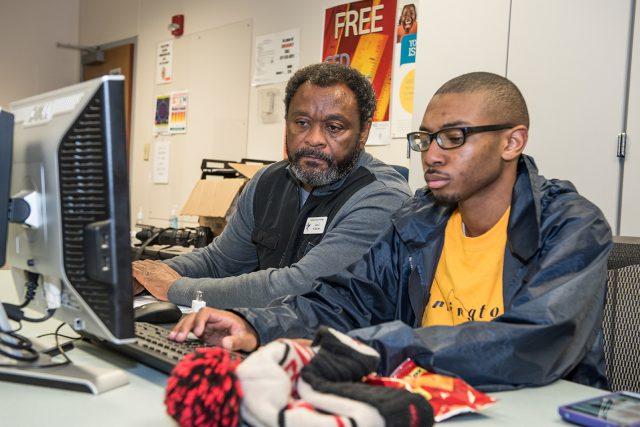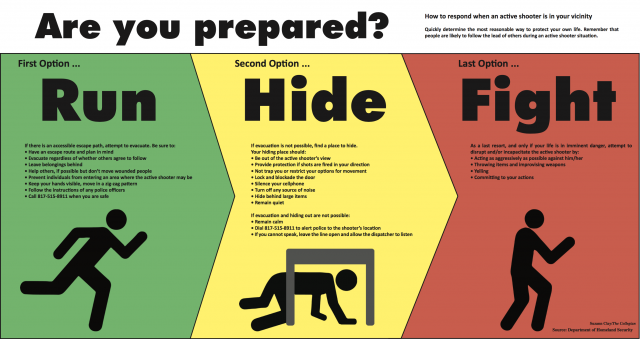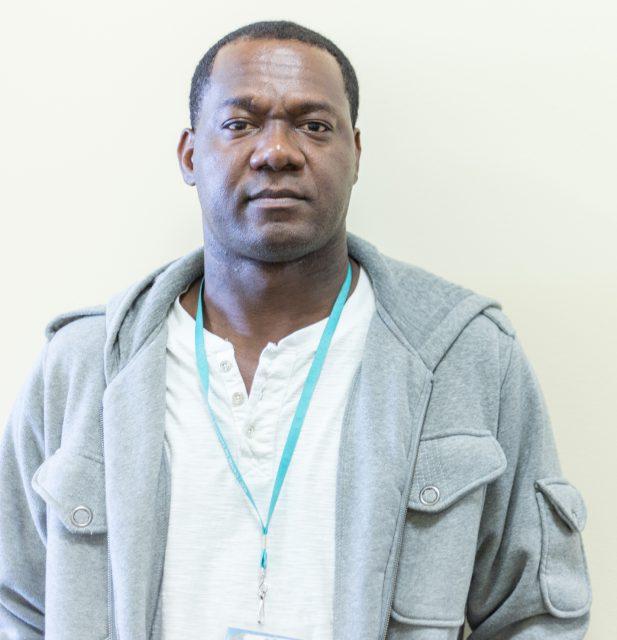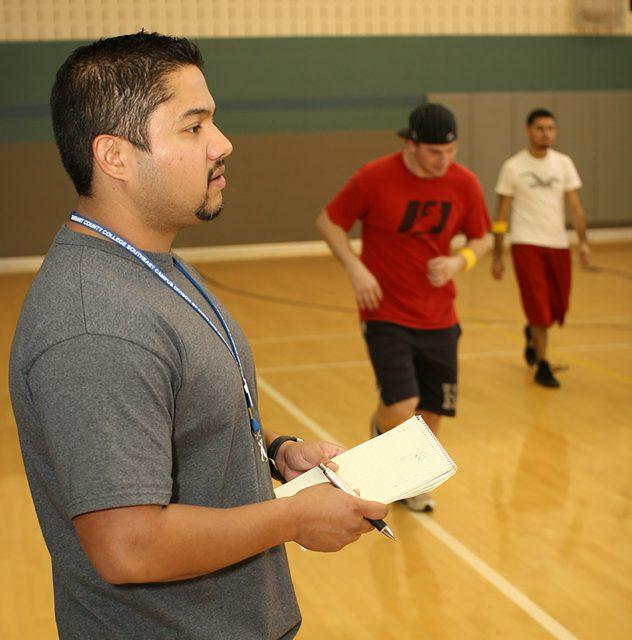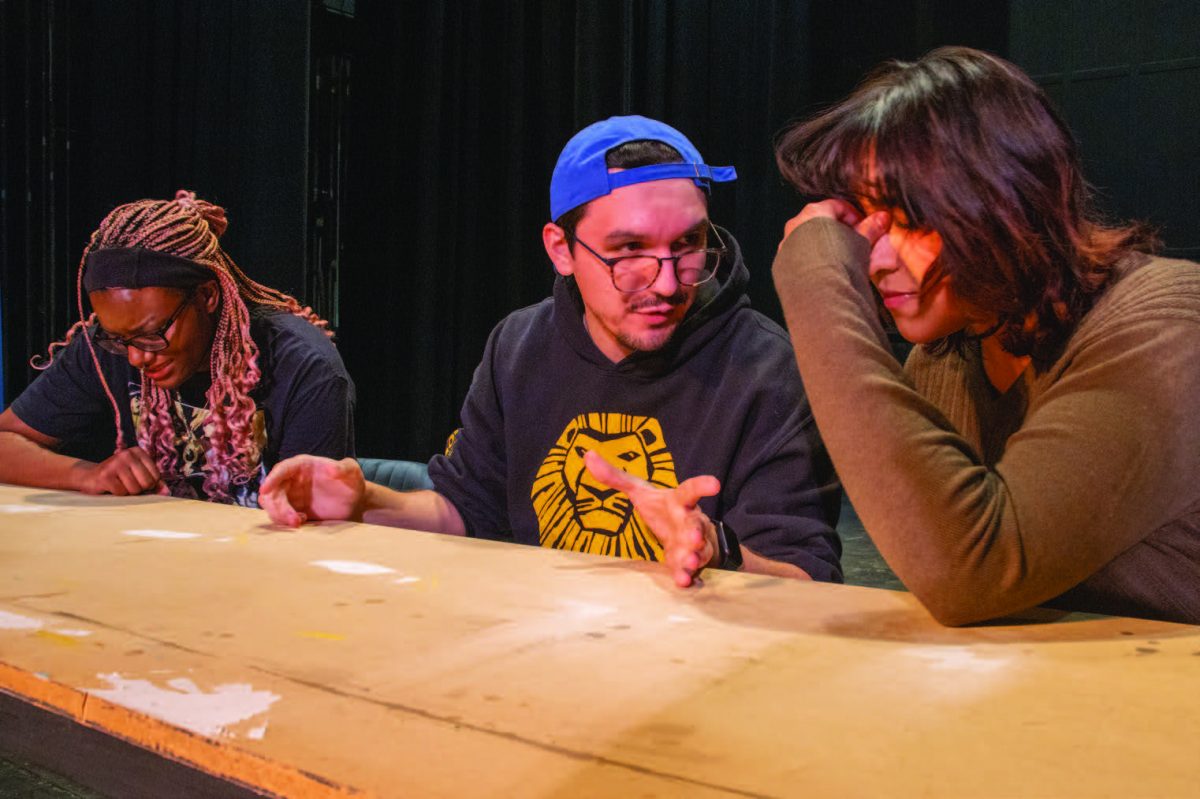By Jamil Oakford/managing editor
Students with autism are learning a new language to prepare for the workforce, thanks to SE Campus’ Community & Industry Education office.
CIE is offering a Python coding class for students with autism to help prepare them for jobs. After working for years with students with special needs, CIE vice president Carrie Tunson said the most underserved group she saw was students with autism. While they’re highly proficient in many academic areas, they needed help in other areas.
“They go to college just like any other student, but they lack the interpersonal skills to keep a job,” Tunson said.
She said this class is designed to not only offer the students an edge in the practical skills area of their resumes but to give them guidance in an area where students with autism typically struggle.
“Most of the students who take these classes are highly skilled in mathematics,” CIE director Vickie Moss said. “So when they get into these classes, one of the ways they deal with social skills is by working in teams.”
In these teams, students will help develop code for various products, she said. The class can also effectively help students with autism work on their interpersonal skills by having a small, manageable class size.
Python, a coding language used for web programming and desktop applications, was chosen over other coding languages because of the need for Python-fluent coders in the workforce, Moss said.
“We were trying to meet the need of the Texas Workforce Commission to include and provide a service to the students that can be used in the workforce immediately after completing this class,” she said.
Some of the students are finding this coding language to be a breeze.
“This is my first coding class,” SE student Conor Tysinger said. “So far, this has been pretty easy. Nothing too complicated.”
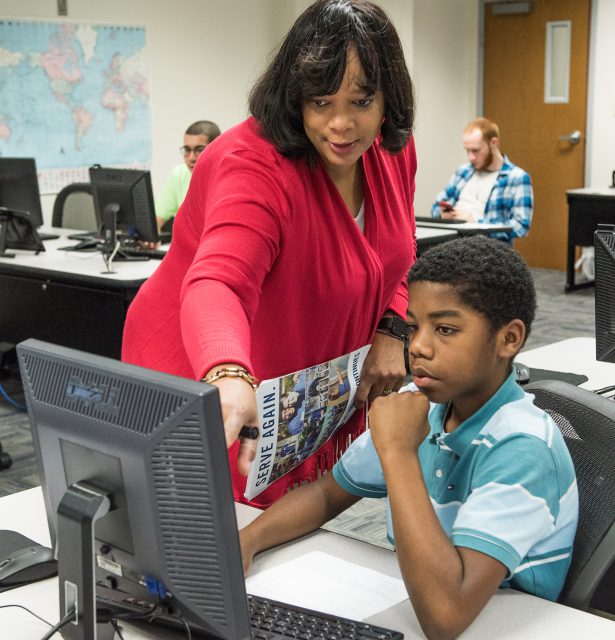
Photo by Robert Burn/The Collegian
For SE student Ellen Clinton who is in her 50s and already a professional, she finds this class to be exciting.
“It’s so different from health care coding,” she said. “Every day, I’m learning something new, which is fun and a challenge.”
Coding student Xabe Cole, a sixth-grader who attends the class, isn’t finding it all that hard either.
“My father and I work on coding, but we stopped for a little,” he said. “It’s not too hard, but it’s challenging enough that you’re not always bored.”
The class has been a success in enrollment, according to Tunson.
“When we had a guest speaker from the technology field, the lightbulb went off for many of those students,” she said. “They’re enrolling in every class we offer.”
While the class is priced at $100 per student per class, it’s still cheaper than what the market offers for a person to be certified in basic Python coding. On average, these coding classes offered outside of TCC with an employee-recognized proficiency certificate could cost at most $2,000, she said
Tunson said this price is kept low for TCC students to ensure they can be a part of this class.
“We’re not in the business of making a lot of money, we’re in the business of breaking even,” she said. “That’s one of the reasons we can offer it at this price.”
SE’s CIE office has already slotted more technology-based classes for students with autism in the fall, Moss said. Web design, CAD3 printing and digital animation are just a few of those offerings. This month, they’ve also started a class in connection with Apple to have a Swift coding class open to the public, including students with autism.
She and Tunson said they are happy to see the students succeed.
“We feel we’ve accomplished our goal,” Tunson said. “They can leave here with one or two classes and still be able to get a job.”






















